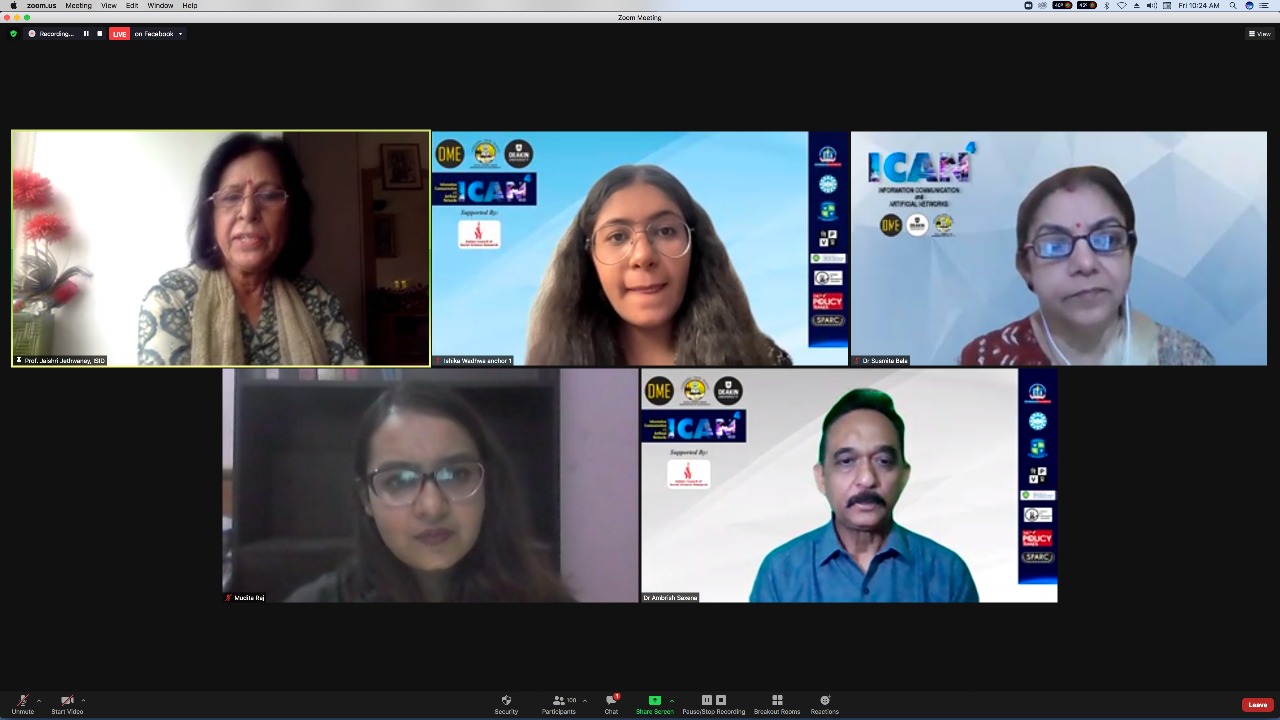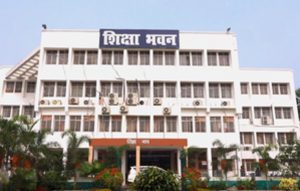Researcher Jaishri Jethwaney, Academician Dr Monisa Qadri and filmmaker Vijay S Jodha engage on Day 2 of ICAN 4

NOIDA: Day 2 of the International Conference ICAN 4 organized by DME Media School began with Special Session 2 on the subject ‘What the New Labour Codes have for the working journalists in India: An empirical perspective’ with Prof. (Dr) Jaishri Jethwaney, Senior ICSSR Research Fellow, ISID, New Delhi as the expert. The session opened with the remarks of Dr Ambrish Saxena, Dean, DME Media School and Convener of ICAN 4. He welcomed the guest and said, “Today’s media students will be tomorrow’s journalists.”
In her address, Prof. Jethwaney highlighted the concept of New Labour Codes, which applies journalists from the electronic and digital media as well, as opposed to print media alone. She mentioned that labour comprises almost 70% of India’s total population. “Labour is a concurrent subject, and at times it’s complex and contradictory,” she said while explaining the thought behind the new codes.
The senior media academician further shed light on the laws and statutes that have governed journalism in India, including the Working Journalists Act and Wage Boards. Prof. Jethwaney discussed the drawbacks for journalists caused by a change in the employment status from a permanent to contract basis. She suggested that the profession of media should be treated differently. “If media professionals are not considered employees, how will they get social security?” she questioned.
She quoted John Elliot, “All meaning comes to an interpretation”, to sum up her views that the impact of New Labour Codes on journalists will be determined as per their construal by the authorities.
Dr Susmita Bala, Professor and Head, DME Media School, made the concluding remarks. The session was moderated by Ms Mudita Raj, Assistant Professor.
Then ICAN 4 preceded with Technical Session 1 on the theme ‘Communication and Media resistance in socio-political context’. It was chaired by Dr Monisa Qadri, Former Head, Journalism & Mass Communication (DJMC) & Head, University Social Media and PR Consultant, Islamic University of Science & Technology, Pulwama, J&K and Ms Krishna Pandey, Assistant Professor, DME Media School was the co-chair. The research papers of the day encompassed various subjects such as social media emerging as an agenda-setting tool, self-presentation of urban youth on Facebook, new IT rules for social media, application of sedition law against journalists and much more.
Dr Qadri appreciated the uniqueness of all research papers and declared ‘E-Governance in Socio-Political Context: A Study based on Sewa Kendras of Punjab’ by Ms Kirti Loomba from Department of Journalism and Mass Communication IKG Punjab Technical University, Kapurthala, Punjab as the best paper presentation of the session.
Prof. Ambrish Saxena, Convener of ICAN 4 emphasized on boosting contemporary research through such conferences. The session was conducted by Ms Krishna Pandey, Assistant Professor, while Prof. Susmita Bala, Head, DME Media School, summed up the session.
Day 2 of the conference also had Master Class-1 on‘Documentary Film Making’ by Mr Vijay S Jodha-writer, filmmaker and a self-taught photographer.
Mr Vijay Jhodha initiated the discussion by talking about the purpose and types of films. He said, “It is essential to understand and appreciate the fact that there are all kinds of films that are made serving all kinds of purposes.”“Even a film made for an NGO, there is an audience and resource allocation that results in serving the purpose of making them,” he added.
Talking about taking the projects to the outer audience, Mr Jhodha said, “Sending a project for a larger audience means that one is competing with a lot of films. In such a scenario, it is very crucial to make not just a cinematic but engaging product”.
In the end, the veteran filmmaker answered several questions asked by the curious audience. Prof. Ambrish Saxena and Prof. Susmita Bala also expressed their views on non-fiction filmmaking. Ms Sruthi VS, Assistant Professor, DME Media School, moderator of the session, concluded the Master Class with a vote of thanks.
By EP Web Desk








